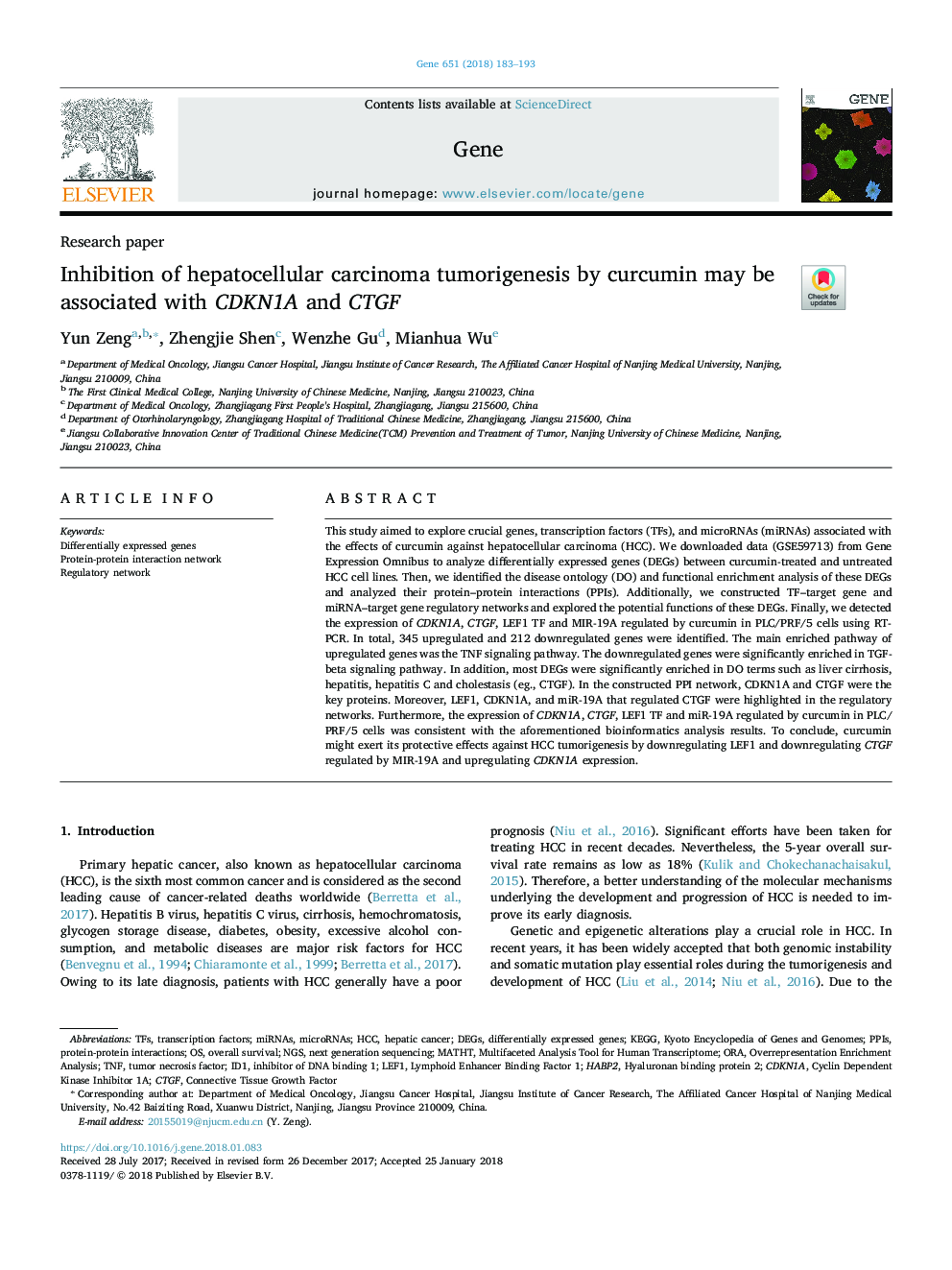| Article ID | Journal | Published Year | Pages | File Type |
|---|---|---|---|---|
| 8645465 | Gene | 2018 | 11 Pages |
Abstract
This study aimed to explore crucial genes, transcription factors (TFs), and microRNAs (miRNAs) associated with the effects of curcumin against hepatocellular carcinoma (HCC). We downloaded data (GSE59713) from Gene Expression Omnibus to analyze differentially expressed genes (DEGs) between curcumin-treated and untreated HCC cell lines. Then, we identified the disease ontology (DO) and functional enrichment analysis of these DEGs and analyzed their protein-protein interactions (PPIs). Additionally, we constructed TF-target gene and miRNA-target gene regulatory networks and explored the potential functions of these DEGs. Finally, we detected the expression of CDKN1A, CTGF, LEF1 TF and MIR-19A regulated by curcumin in PLC/PRF/5 cells using RT-PCR. In total, 345 upregulated and 212 downregulated genes were identified. The main enriched pathway of upregulated genes was the TNF signaling pathway. The downregulated genes were significantly enriched in TGF-beta signaling pathway. In addition, most DEGs were significantly enriched in DO terms such as liver cirrhosis, hepatitis, hepatitis C and cholestasis (eg., CTGF). In the constructed PPI network, CDKN1A and CTGF were the key proteins. Moreover, LEF1, CDKN1A, and miR-19A that regulated CTGF were highlighted in the regulatory networks. Furthermore, the expression of CDKN1A, CTGF, LEF1 TF and miR-19A regulated by curcumin in PLC/PRF/5 cells was consistent with the aforementioned bioinformatics analysis results. To conclude, curcumin might exert its protective effects against HCC tumorigenesis by downregulating LEF1 and downregulating CTGF regulated by MIR-19A and upregulating CDKN1A expression.
Keywords
TNFlymphoid enhancer binding factor 1miRNAsNGScyclin dependent kinase inhibitor 1ALEF1CDKN1AHABP2inhibitor of DNA binding 1PPIsCTGFDEGsTFsHCCId1overall survivalProtein-protein interactionsNext generation sequencingKEGG یا Kyoto Encyclopedia of Genes and Genomes Kyoto Encyclopedia of Genes and GenomesmicroRNAsHepatic cancerProtein-protein interaction networkregulatory networkORATranscription factorsConnective tissue growth factortumor necrosis factorDifferentially expressed genes
Related Topics
Life Sciences
Biochemistry, Genetics and Molecular Biology
Genetics
Authors
Yun Zeng, Zhengjie Shen, Wenzhe Gu, Mianhua Wu,
